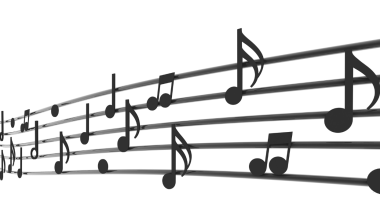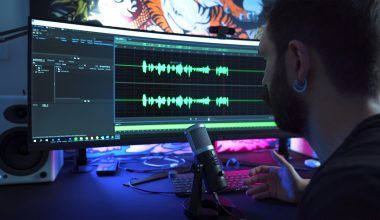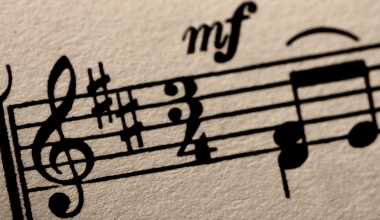If you write songs or compose music, you’ve probably heard about music publishing. But what does it really mean? Don’t worry—it’s not as complicated as it sounds. Music publishing is simply about protecting your songs and making sure you get paid whenever someone uses your music.
Think of it like this: your song is a piece of property. Just like you wouldn’t let someone use your house without asking, music publishing makes sure people can’t use your song without permission—and that you get paid if they do.
This guide will explain everything about music publishing in the easiest way possible, so you can protect your songs and earn money from your creativity.
What Is Music Publishing?
Music publishing is the system that helps songwriters, composers, and artists manage their music. It makes sure your work is protected and ensures you get paid when someone plays, streams, or uses your song.
Here’s why music publishing matters:
- Protect Your Work: Your songs are safe from being copied or stolen.
- Earn Money: You get paid whenever your music is used.
- Grow Your Reach: Your songs can be used in movies, ads, and more, reaching new audiences.
Music publishing is the backbone of the music industry. Without it, creators wouldn’t get the rewards they deserve.
Why Do You Need Music Publishing?
Every time your song is used—whether on the radio, in a movie, or on a streaming platform—you’re entitled to royalties. Music publishing ensures you collect all the money you’re owed.
Here’s why music publishing is essential for every songwriter:
- Royalty Collection: Keeps track of where your music is played and collects the money for you.
- Copyright Protection: Makes sure no one can use your song without your permission.
- Bigger Opportunities: Publishers can help your music get featured in TV shows, films, or ads.
Whether you’re an independent artist or a professional musician, music publishing is key to turning your music into a career.
How Does Music Publishing Work?
Let’s break it down step by step:
- You Write a Song: Every song starts with you—the creator.
- Copyright Your Work: By copyrighting your song, you legally protect it from being stolen.
- Join a PRO: Performing rights organizations (like ASCAP or PRS) collect royalties when your song is played publicly.
- License Your Song: Publishers help license your song for use in movies, ads, or TV shows.
- Collect Royalties: Music publishers track your earnings and make sure you get paid.
What Are Music Publishing Rights?
When you write a song, you automatically own its copyright. This copyright gives you control over your music and ensures you earn money from it.
There are two main types of rights in music publishing:
- Songwriting Rights: These cover the lyrics and melody you create.
- Recording Rights: These apply to the specific recording of your song.
Each time your music is played or used, it generates income. Music publishing helps you manage these rights so you don’t miss out on any money.
Types of Royalties You Can Earn
Music publishing ensures you get paid in different ways, called royalties. Here are the main types:
- Performance Royalties: Earned when your song is played live, on the radio, or in public places like cafes or malls.
- Mechanical Royalties: Paid when your music is sold as CDs, vinyl, downloads, or streamed online.
- Sync Royalties: Money you earn when your song is used in visual media, like TV shows or movies.
- Print Royalties: Earned from the sale of sheet music of your song.
What Does a Music Publisher Do?
A music publisher is like your song’s business manager. They take care of the tricky parts so you can focus on making music. Here’s what they do:
- Register Your Music: Ensures your songs are legally protected.
- Pitch Your Songs: Finds opportunities for your music in ads, films, or shows.
- Collect Royalties: Tracks and collects all the money your song earns.
- Protect Your Work: Makes sure your music isn’t used without your consent.
Who Should Use Music Publishing?
Music publishing is for anyone who creates music. It doesn’t matter if you’re a beginner or a pro—it’s an essential tool for protecting your work.
Here’s why you might need it:
- Independent Artists: Helps you manage your music and track royalties on your own.
- Professional Musicians: Opens doors to global opportunities and bigger projects.
- Songwriters and Composers: Ensures you get paid fairly for your creative work.
Common Music Publishing Deals
When working with a music publisher, you might sign one of these deals:
- Full Publishing Deal: The publisher manages everything but takes a larger share of royalties.
- Co-Publishing Deal: You share ownership and royalties with the publisher.
- Administration Deal: You keep full ownership, and the publisher helps collect royalties and license your music.
- Sync Deal: Focused on getting your songs into movies, ads, or TV shows.
Each deal has its pros and cons, so choose the one that fits your needs.
Steps to Start with Music Publishing
Getting started with music publishing is easy if you follow these steps:
- Write Your Songs: Create music that you’re proud of.
- Copyright Your Work: Protect your songs by registering them with a copyright office.
- Join a PRO: Sign up with a performing rights organization to collect performance royalties.
- Partner with a Publisher: Work with a music publisher to unlock more opportunities.
- Track Your Royalties: Keep an eye on where your music is played and how much it earns.
Challenges in Music Publishing
Music publishing has many benefits, but there are challenges too:
- Understanding Contracts: Publishing agreements can be confusing. Always read them carefully.
- Global Royalties: Tracking earnings from different countries can be tricky.
- Copyright Issues: Protecting your music from theft requires ongoing effort.
The Future of Music Publishing
The music world is always changing, and so is music publishing. Here are some exciting trends:
- AI Tools: Technology is making royalty tracking faster and more accurate.
- Streaming Growth: More platforms mean more ways to earn.
- Blockchain Technology: Ensures fair and transparent royalty payments.
Conclusion: Why You Should Care About Music Publishing
If you’re serious about music, you need to understand music publishing. It’s not just about earning money; it’s about protecting your hard work and building a sustainable career.
By learning the basics of music publishing, you can take control of your songs, ensure they’re protected, and unlock new opportunities for growth. Whether you’re just starting out or already a pro, music publishing is your key to success.
Related Articles:
For further reading, explore these related articles:
- The Ultimate Guide to Music Video Distribution Service: Reaching Your Audience Worldwide
- Best Music Video Distribution – A Comprehensive Guide to Boosting Your Reach
- All Music Distribution: A Comprehensive Guide to Get Your Music Heard Everywhere
For additional resources on music marketing and distribution, visit Deliver My Tune.






